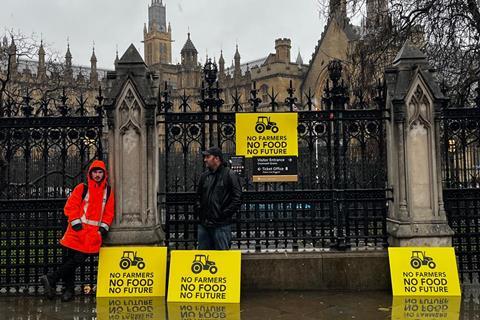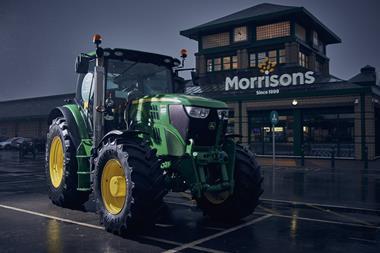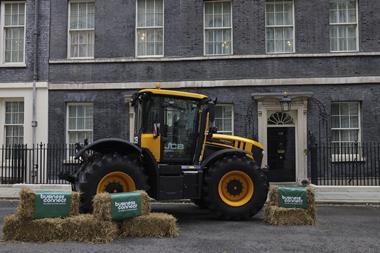
Farmers aren’t protesting to get a tax break. They’re protesting because, for too long, the costs of food production have exceeded the price for which it is sold at the farmgate.
After World War II, the combination of food shortages and a rapidly growing population made global famine a real and serious threat to humanity. The Green Revolution prompted the advent of chemical farming; the subsequent increase in yield meant the post-war fear of famine had been miraculously dispelled. This transformative response should be considered one of the great miracles of the 21st century.
However, prioritising yield at all costs over many decades led to the overuse of, and dependence on, chemicals and pesticides to drive mass food production. Since the mid-20th century, farmers in the UK have been incentivised to grow food in a way that divides food production from nature restoration.
Focusing on one sole metric in any complex system will likely lead to unintended consequences. In this case, the unintended consequences are degraded soil, destroyed ecosystems and contaminated waterways across Britain.
Take nature. In the last 50 years, global wildlife has declined by 70%. In human terms, this is the equivalent of losing everyone in Europe, Africa, North and South America, China, and Australasia. Within this decline, the UK is in the bottom 10% for biodiversity, making food production more vulnerable to threats like pests and crop diseases.
And think further about the implications of degraded soil.
An acre of healthy soil can store up to 100,000 litres of water. However, degraded soil is far more likely to result in droughts and floods. This threatens future harvests and undermines our long-term ability to feed ourselves.
The current system is failing our farmers, our fields, and our future harvests. But this problem can be fixed.
Read more:
-
‘We’ll have nothing left’: Emotional reactions from Westminster farmers’ protest
-
Farmer protests kick off in London following ‘stab in the back’ budget
-
Labour’s disregard for farmers makes my blood run cold
It requires a holistic view of value for which farmers are paid: a pricing mechanism that considers not only the quantity of food, but also the health of the soil in which it has been grown and associated water quality, nature restoration and carbon footprint.
At Wildfarmed, we internalise these externalities by working with our community of farmers across the UK to grow food using regenerative agriculture techniques. We are bringing together businesses across the food industry who are using their procurement budgets to scale this transformation.
More than 1,000 businesses – from supermarkets such as M&S and bakeries like Greggs to schools, stadiums, and restaurants – have already integrated Wildfarmed products into their supply chains. It means they are sourcing grain that is pesticide-free, while soil health and biodiversity are improved, carbon is reduced, and river pollution is minimised.
But this isn’t just about us. Regenerative agriculture is a resilient, scalable solution, and it works.
To make this a widespread, industry-wide solution, what we need now is collaboration. This is a huge opportunity for the food and drink industry to come together and consider how regenerative practices could be integrated into their operations. Whether you’re a major retailer, a local bakery or a caterer, everyone can play their part.
Incorporating regenerative farming into supply chains is a proven route to restoring nature, tackling climate change and supporting our farmers. And ultimately, it will ensure supply chain resilience.



















No comments yet